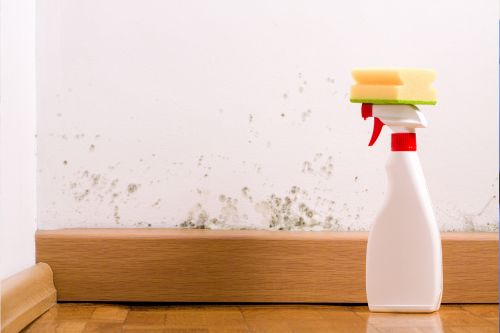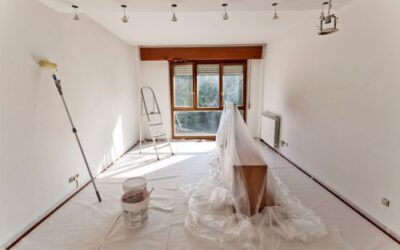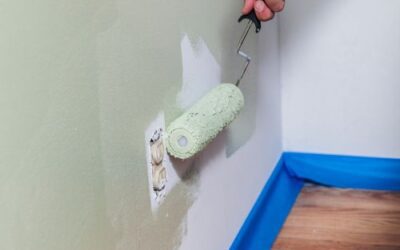Stains on walls are inevitable, especially in spaces where daily activity is constant. But don’t worry, it is possible to clean them without damaging the paintwork. Here’s how to remove different types of stains and some tips to keep your walls looking spotless for longer.
Common types of stains on walls
Grease stains
Grease stains are very common, especially in the kitchen. These stains can be easily removed with a mixture of warm water and mild detergent. Use a microfibre cloth to apply the solution and rub gently. If the stains are persistent, consider using a magic sponge, which is very effective without damaging the paint. Remember, if you have wood surfaces nearby, you may also need to pay attention to their maintenance. If you need to restore wood, at Bartolomé Bas we also offer wood restoration and treatment services.
Contact our professionals to paint the walls of your home
Moisture stains
Damp stains are very common in areas such as bathrooms and basements. They are often accompanied by mould, which can be detrimental to both the aesthetics of your home and your health. To remove such stains, one option is to use antibacterial paints that prevent mould and mildew in the long term. In addition, these solutions not only remove the stains, but also combat future damp problems. You can find out more about how to deal with these situations in our section dedicated to damp and mould removal.
Pencil and marker marks
If you have children at home, you’ve probably been confronted with crayon or marker marks on the walls. The good news is that these marks are usually easily removed with a magic sponge or a baking soda solution. These options are gentle enough not to damage the paint.
Effective methods to clean stains without damaging paintwork
Use mild products
The first step in removing any type of stain is to use mild products, such as a mixture of warm water and neutral soap. This is usually sufficient for most stains without the risk of damaging the paintwork. If you find that the stain persists, you can try a more specialised product, but it is always best to start with the least aggressive. Also, if you are considering repainting, opting for washable or antibacterial paints is a great way to prevent future stains.
Avoid excessive rubbing
One of the most common mistakes when trying to clean stains is rubbing too hard, which can wear away the paint. Ideally, apply the cleaning solution gently and allow it to work for a few minutes before rubbing gently. In this way, you protect the integrity of the paintwork and achieve effective results without abrading the surface.
Recommended products for stain removal
Magic sponges
When stains are particularly difficult to remove, such as those caused by permanent marker, magic sponges can be very useful. However, it is important not to overuse them, especially on walls with delicate or matt finishes, to avoid damaging the paintwork.
High resistance paints
While removing stains is important, preventing them is even better. Using washable paints, especially in high-traffic areas or homes with children, can make daily maintenance much easier. These paints allow walls to be easily cleaned without compromising the colour or finish.
This way, you can keep your walls clean and well cared for, while prolonging the life of the paint. And if you ever need to restore your exteriors, you can consult our façade painting and restoration services to make sure your home always looks like new.
Other publications that may interest you
Paint suitable for basements and poorly ventilated rooms
Basements, storerooms or garages have unique conditions: poor ventilation, high humidity and increased risk of mould or condensation. Using conventional paint in these spaces is a common mistake that leads to ephemeral finishes and health problems due to fungi or...
How often should a house be painted depending on its use?
The frequency with which you should paint a house is not always the same. It depends on several factors: the use given to each room, the quality of the paint used, exposure to light or humidity, and even the colour. In this guide we explain how often you should renew...
Tips for painting a room without staining doors and sockets
Painting a room may seem like a simple task, but without the right preparation it's easy to end up with splashes on doors, sockets, switches and even skirting boards. If you want a clean, professional finish, we've got the best tips to avoid stains and save you...




